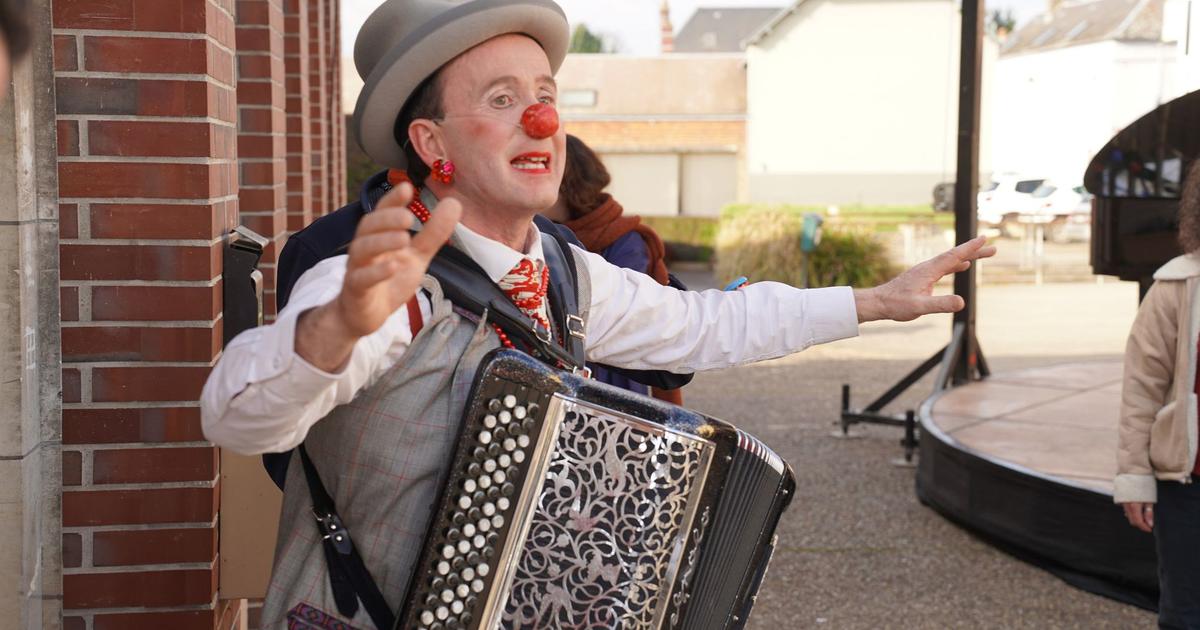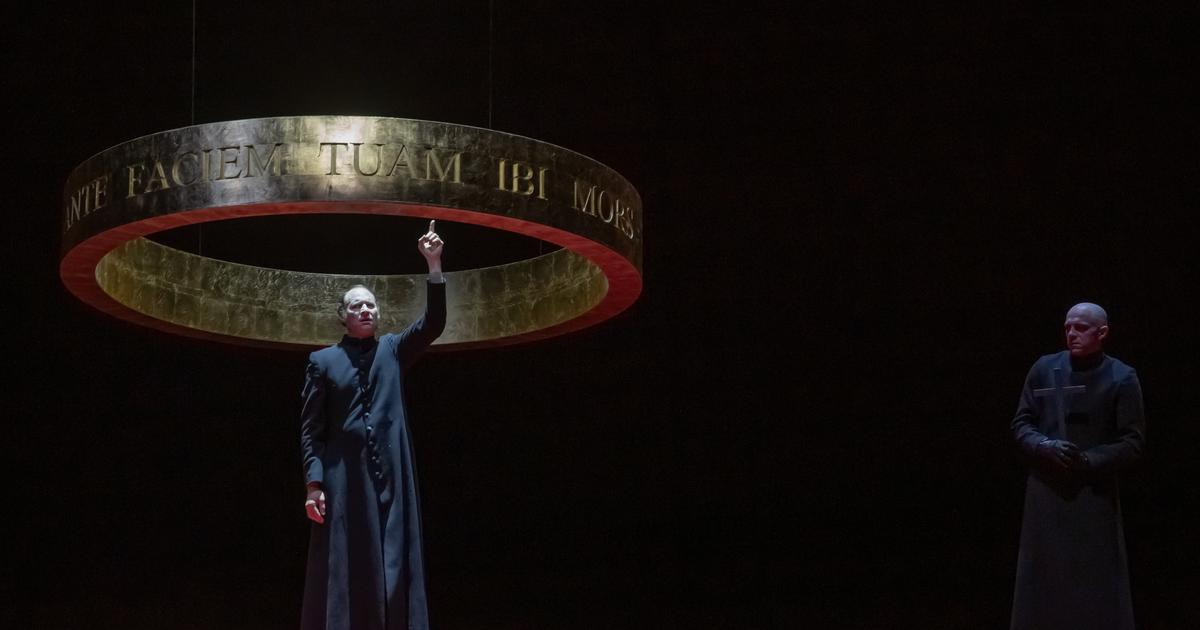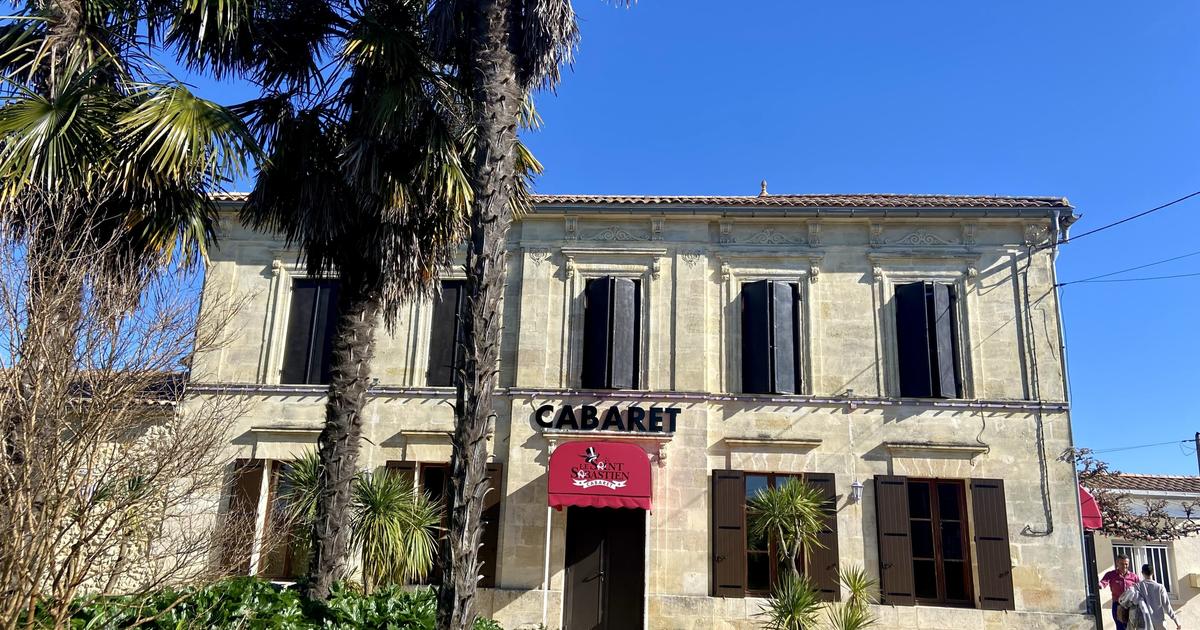“We should not consider the theater as something that is always there, guaranteed.
Because it is something sacred ”.
This was said by Lin-Manuel Miranda, creator of
Hamilton,
one of the most successful Broadway musicals in recent years, last Tuesday in front of the Richard Rogers Theater, shortly before the rerun of this play after a year and a half hiatus due to the pandemic.
Although some stages of the city returned to activity in summer, it was this last week that the most popular productions have once again raised the curtain, bringing life back to the cultural heart of New York and finally joining the progressive reopening of theaters and opera houses that have been lived all over the world.
The main coliseums in London, Paris, Rome and, of course, Spain, have also started their new seasons or are about to do so, one of the few countries where they were open all last season.
More information
The return of the European theater
The opera sounds again in the world
The new season begins with great enthusiasm on the part of the public and great expectations, but also with caution because the hiatus has left the sector very affected and because anticovid regulations still impose limits, although in different ways depending on the country. While in the United States, France and Italy, spectators need to present the vaccination certificate to attend the shows, others such as Spain or the United Kingdom do not require it. In addition, different capacity restrictions apply even within the same country: for example, from this Monday, September 20, Madrid allows the sale of 100% of the tickets, compared to the limitations that remain in the rest of Spain.
Actress Kristin Chenoweth welcomes the audience ahead of a revival of the musical 'Wicked' at New York's Gershwin Theater on Tuesday.Craig Ruttle / AP
The revival of Broadway goes beyond culture: it resurrects the economic fabric around theaters - restaurants, bars,
souvenir shops
, taxis - which together employed about 97,000 people and provided New York with $ 14.7 billion. (12,400 million euros) per year.
However, the
sign of
no tickets
cannot be hung until the millions of tourists, nationals and foreigners, who made up 65% of its public, return to the city.
Like mushrooms, thanks to the magic of theaters, new restaurants and terraces have sprung up in Manhattan in recent weeks; veteran
diners
and pubs that have been closed since 2020; Street vendors of tickets or impersonators of Disney or Marvel characters: Broadway is once again a binge of people and lights, after a year and a half like a black hole. Rose and Allen looked forward to Thursday in the
Hamilton
queue
. “It is the first time that we go to the theater since the pandemic and we have been very lucky to get tickets, everything is sold out until Christmas. We are excited, back to the theater! ”, They said at the door of the building, two hours before the performance. Personnel with digital thermometers and scanner readers to check vaccination status marched through the public. The masks, mandatory inside the rooms, were also seen in the queues, without exception.
At the Ambassador, the theater of the incombustible musical
Chicago
, Joan, the box office, claimed to have "almost everything sold, even if it is not a cutting-edge play, but a classic."
The big three hits -
Hamilton
,
The Lion King
and
Wicked -
each making more than a million dollars at the box office a week before closing are abuzz with fans these days, but small monologue rooms are also benefiting from the boost. .
“We had to delimit the line with tapes, to order the public and do the vaccination check.
People collaborate because they want to regain normality ”, explained a theater worker from which a famous
late show
is broadcast
television and that registered the most copious line in the area.
The resistance of the Odeon in Paris
Also in Paris there are queues these days. Elisabeth was preparing the mask and her covid certificate at the gates of the Odéon in Paris last Thursday. "I missed it a lot", affirmed this retired and faithful for years to the mythical room of the
Parisian
rive gauche
. As during the May 1968 revolution, this theater in the Latin Quarter during the pandemic became a symbol of resistance: in March, a group of artists and technicians occupied the Odeon to demand more aid for the entertainment sector during the second coronavirus closure of cinemas, theaters and other cultural spaces, which lasted almost seven months, until mid-May. The movement spread rapidly throughout France and dozens of rooms were occupied for weeks.
Protest banners at the Odéon theater in Paris last March due to the closure of the theaters in France.BERTRAND GUAY / AFP
The protest banners have been replaced by large posters with the new billboard.
Elisabeth looks "completely safe" and happy to be able to return to "her" theater.
Nor do Anne Marie and her son Ferhat, other regulars at the Odéon, feel any apprehension when it comes to sitting down in a room with an audience.
"The first time it was a little weird, but we've gotten used to it by now," he says.
"We are vaccinated and we wear a mask, it is no less safe than going to work or the subway," says his mother.
The world of French live entertainment needs passionate audiences, such as Elisabeth, Anne-Marie or Ferhat. Despite the generous public aid during the pandemic - the economic reactivation plan announced in September 2020 foresees 2 billion euros for culture, of which 793 have already been granted, according to the Ministry of Culture - the sector has suffered by the long closure and the bitterness is wide. "Despite having received a lot of help and support from the public authorities, there is a feeling of relegation in priorities, as if culture were a second-rate issue," he recently summarized in
Le Monde
Françoise Benhamou, Professor of Economics at the Sorbonne.
"I believed that a country like ours, which speaks so much about French cultural exceptionality, would have been proud to keep cultural venues open," laments actor Nicolas Briançon.
The theater director also shares a general fear of the sector: that normality takes a long time to return.
On rue de la Gaîté, where small private theaters - which are only now resuming their activity in a generalized way - are multiplying between bars and restaurants, queues have been forming again for a few days in front of the auditoriums.
But the rhythm still hasn't picked up, says Briançon.
"The public begins to return, but it is not so simple", tells shortly before the beginning of
Jacques and his master
, the piece by Milan Kundera that he directs and stars at the Montparnasse theater.
“We all said that people thirst for culture, but it is not true, many have lost the habit of going to the theater and we are going to have to recover it.
They have gotten used to Netflix, to coming home in the afternoon.
It's more difficult to say 'I'm going to the theater' than to say 'well, I take a beer out of the fridge and put on a series at home'.
This is going to take some time, ”he warns.
Even so, the feeling of relief to move towards a normalization of cultural life is shared, he says.
"In spite of everything, for us it is a liberation to be able to exercise our trade," he says as he hands out greetings to those waiting for the show.
A technician hangs up a poster for the musical 'Mamma Mia' last week in London.
NEIL HALL / EFE
Staggered return to London
At the end of August, the then British Minister of Culture, Sports, Media and Digital Affairs, Oliver Dowden, expressed his enthusiasm in a gallery for the London
Evening Standard
: “It has been a special pleasure to see how all those cultural venues that the Government supported during the pandemic they come back to life and get back on their feet ”. Dowden, however, has fallen into the recent government reshuffle promoted by Prime Minister Boris Johnson. In large part, due to his lack of tact in relating to the world of the arts, but also because of the criticism received for his lack of financial aid, compared to that received by cultural institutions in France or Germany. Theaters were able to welcome the call
Job Retention Scheme, a system similar to the ERTEs in Spain. But they have received little financial support for their two main threats: the shortage of external tourism that sustained them - especially in London - and the change in cultural habits of many citizens after the pandemic. Since the so-called “Freedom Day”, on July 19, when the last restrictions were lifted, the theaters of the West End, the Royal Albert Hall, the Royal Opera House or the Globe, have been able to reopen with full capacity . Many have preferred to do it in a staggered way and have maintained rules of social distance or random controls of some clients to check if they had the complete vaccination schedule.
London's West End musicals have been resurrected thanks to the launch of extraordinary budget projects:
Andrew Lloyd Weber's
Cinderella
(the King Midas of musicals),
Disney's
Frozen
, or the dramatized version of the hit film
Back to the Future
. Theater entrepreneurs have renounced
Wednesday
matinees
, which are very popular with foreign tourists due to their low price, and have redoubled performances on Saturdays and Sundays to attract a national audience that, so far, has not failed. The savings accumulated by people who were able to keep their jobs during the pandemic and forced vacations in the interior of the country have allowed the most popular theaters to achieve capacity of more than 90%.
Tough restrictions in Italy
The Opera House in Rome has reopened after a year and a half in which it has survived with online shows and thanks to two extraordinary summer seasons in the open air at the Circus Maximus in the capital.
On September 14, the season opened at the mythical Teatro Costanzi with the ballet
Notre-Dame de Paris
, by Roland Petit, with a reduced capacity of 30%, which is around 500 spectators (its normal capacity is 1,600 attendees). as the director of the corps de ballet of the Rome Opera, Eleonora Abbagnato, explains to this newspaper.
The regulations in force in Italy are the strictest. The law dictates that the capacity of cultural halls must be reduced to at least 50% and specifies that open-air shows cannot exceed 1,000 attendees, and those that take place in closed spaces must have a maximum audience of half a thousand. viewers. In addition, to go to the cinema, the theater, concerts or any live show, it is mandatory to wear a mask, respect the rules of social distance and show the covid certificate that proves the vaccination, that the infection has been overcome or that it has been negative in a recent coronavirus test. The Minister of Culture, Dario Franceschini, several regional governors and numerous exponents of the entertainment world, including musicians, film directors such as Paolo Sorrentino,or actors like Toni Servillo, have asked that these norms be revised and the capacity be expanded for the new season.
A scene from the ballet 'Notre Dame de Paris', premiered at the Rome Opera last week.Fabrizio Sansoni / Teatro dell'Opera di Roma
"The situation is still uncertain, you have to be very attentive and you have to protect your health, you can talk about recovery, but it is still very complicated," says Abbagnato. And he explains that the 75 dancers who go on stage undergo covid tests every two days. During the confinement and the worst of the pandemic, the Rome Opera managed to maintain the programming both with online broadcasts and with open-air plays in summer, which this season saw more than 31,000 people, 37% more than the previous year. “It is important to re-experience the emotions of the shows in closed spaces. Theaters cannot and must not die ”, he points out. For this season they have 12 operas and six ballets planned.
The pandemic has also dealt a severe blow to classical music. Usually, for an artist in this sector, 70% of their income comes from concerts. Although they have survived with internet broadcasts and thanks to government aid, it has been difficult. In addition, attracting the public again is now a challenge. "The sense of aggregation of the concerts has been lost, they were moments of community between the public and the artists", points out the pianist Francesco Taskayali. And he adds: “I perceive a certain distrust of the public. There is not the same desire to go to a concert as before, it may be because of the bureaucracy, because of the need to present the covid certificate, because of the fear of the virus or because the habit has been lost. The pandemic has had a psychological impact on the customs of the public ”.
The pianist Francesco Taskayali, during a concert he gave on a Red Cross immigrant boat during the closure of the theaters and music venues.
The virus also changed Taskayali's agenda: fewer concerts, no sign of international departures and volunteering with the Red Cross that led him to play on the boats that the Italian Government set up last year for immigrants arriving through the sea. they will pass the quarantine. In addition, he decided to move to the island of Ventotene, in the Tyrrhenian Sea, to be inspired when composing. "Many colleagues had trouble writing, being at home does not inspire," he says. In the idyllic setting of the island, he created an album that he has just recorded and that he will present in the coming months. He faces the new season with optimism. "I am receiving requests for concerts, the rhythm is slowly recovering," he says, but regrets that the mandatory nature of the covid passport may dissuade the public. "Humanly,I will regret if someone cannot enter a concert because they do not have the certificate. What this safe-conduct does is divide us between those who have it and those who don't, ”he says. "The musicians in the
Titanic they
played until the end, after all the music is a salvation ”.




/cloudfront-eu-central-1.images.arcpublishing.com/prisa/5W6CHUNHSBEA7LO24XWRGGNAM4.JPG)




